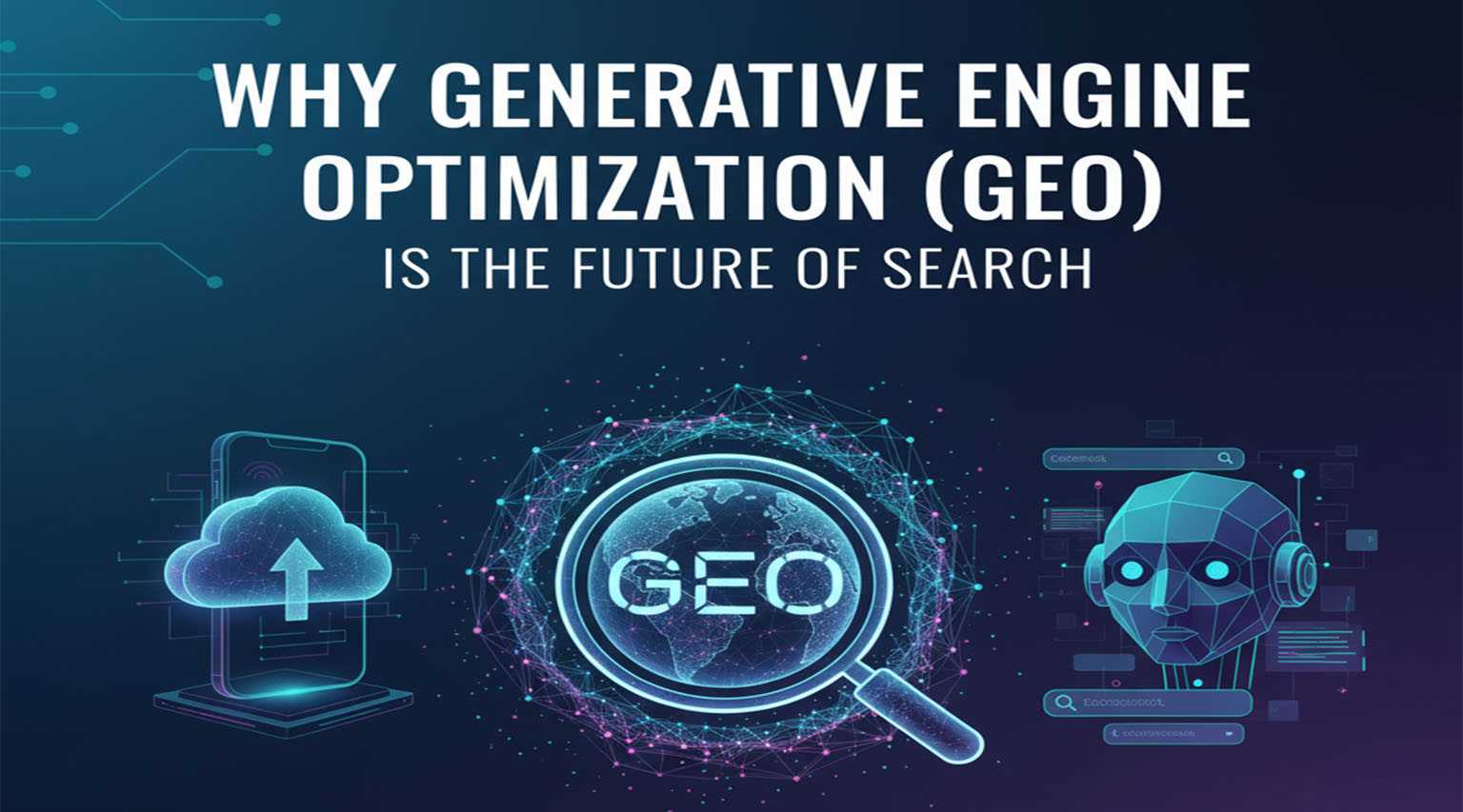Generative Search Engine Optimization (GEO) is a reality today. Traditional SEO, which once focused on optimizing websites through keywords, backlinks, and ranking signals, is now evolving under the influence of Generative AI.
With the rise of AI-powered search optimization and conversational interfaces like ChatGPT, Gemini, and Perplexity, brands are realizing that the future of discoverability is not just about ranking higher in Google; it’s about being found by AI-driven engines. This is where Generative Engine Optimization (GEO) comes in.
What Is Generative Engine Optimization (GEO)?
Generative Engine Optimization (GEO) is the practice of tailoring content, data, and digital presence to be effectively understood, cited, and surfaced by generative AI systems.
Unlike traditional search, where SEO optimizes a page strictly for search engine algorithms, GEO focuses on LLM search optimization and helping large language models generate accurate, context-rich, and brand-relevant responses.
Think of it as the next stage in the search engine evolution with AI, where results are dynamic and conversational answers.
Why GEO Matters for the Future of SEO 2025
As we approach the future of SEO 2025, two massive shifts define the landscape:
Conversational Search Optimization
People are moving from typing short keywords to asking full, natural-language questions. GEO ensures that your content is structured in ways LLMs can parse effectively, so your brand’s insights are included in AI-generated conversations.
AI-First Content Strategy
Traditional SEO advised "writing for humans, optimizing for bots." In GEO, it’s about writing for humans through AI—designing content that is human-centered but AI-readable. An AI-first content strategy aligns with how generative engines select sources and synthesize information.
Machine Learning in SEO
AI systems are powered by machine learning in SEO, meaning the factors that determine visibility evolve dynamically based on user intent, context, and conversational feedback loops. GEO ensures you’re optimized continuously as the models evolve.
How to Implement GEO in SEO Strategies
If you’re wondering how to implement GEO in SEO, here are the key strategies:
-
Structured Data for AI Search: Use schema markup and structured data to make your information machine-readable and boost its chances of being included in AI-driven answers.
-
Generative AI SEO Alignment: Create high-quality, authoritative, and well-cited content that generative engines can confidently pull from.
-
Conversational Content: Develop FAQs, guides, and long-form posts that mirror how people naturally ask questions in conversational search.
-
Entity Optimization: Ensure your brand, products, and experts are recognized as entities across the web so that AI systems can correctly reference them.
The Competitive Edge of GEO
Companies that adopt Generative AI SEO early will get a big edge. Showing up in AI-generated answers is the new prime digital space, just like ranking at “position zero” in traditional SEO.
By integrating LLM search optimization techniques, businesses will not only future-proof visibility but also embed themselves into the decision-making journeys of consumers who rely on AI assistants for recommendations.
The future of SEO 2025 is about being part of the answer that AI generates. Generative Engine Optimization is the next big evolution that marketers, businesses, and creators need to embrace.
The shift from keyword-first to AI-first content strategy means brands must think about how machines read, process, and deliver their content in conversational ways.
With AI-powered search optimization and conversational search optimization, GEO is the roadmap to thriving in the new AI-driven digital landscape.





(0) Comments:
Leave a Reply